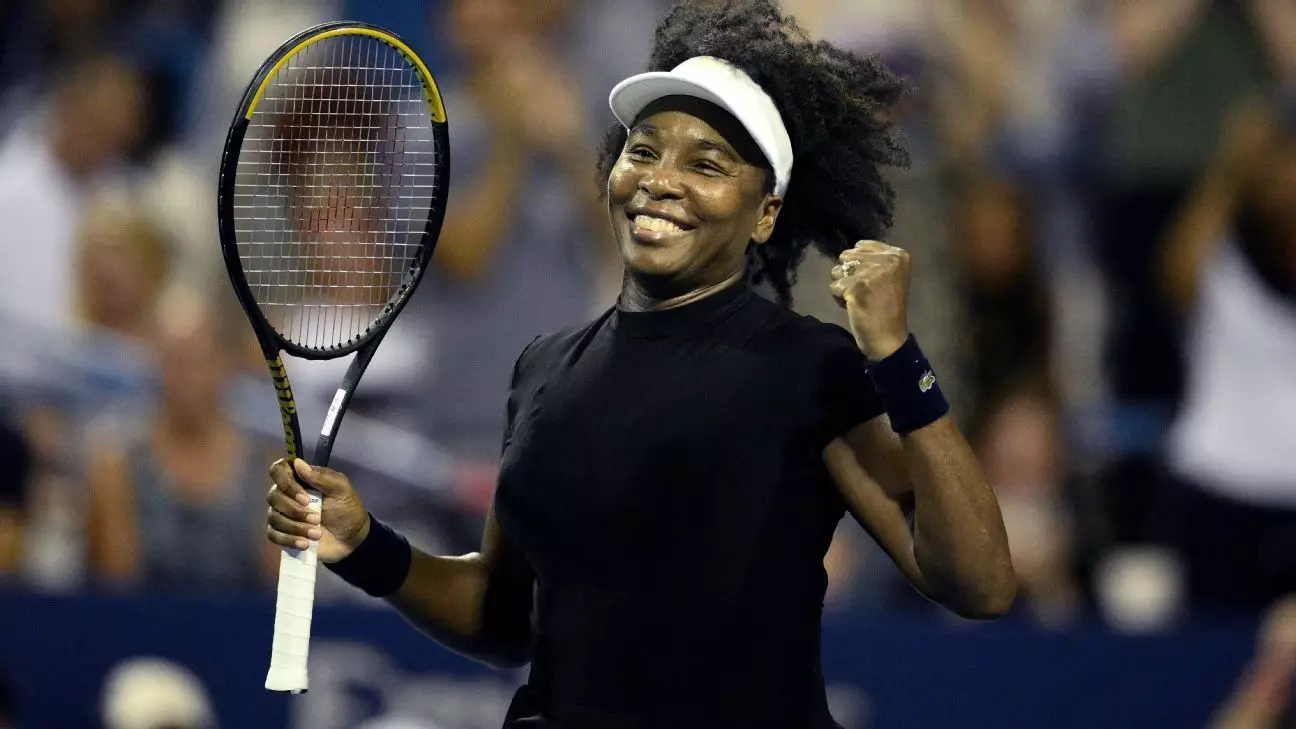Venus Williams’s comeback to competitive tennis in her mid-40s underscores more than just athletic skill; it embodies resilience, determination, and an unyielding pursuit of excellence. In an era where sports often favor youth and fleeting fame, her decision to step back onto the court speaks volumes about her character and unbreakable spirit. By proudly showcasing her ability to compete at the highest level, Williams not only challenges perceptions but also sets an inspiring example that age is truly just a number for those willing to fight against limits.
Her victory at the DC Open — becoming the second-oldest woman to win a tour-level singles match — was a triumphant testament to her enduring talent and mental fortitude. It was a moment that transcended the game itself, transforming into a powerful message to anyone struggling with setbacks or doubting their potential. Even more compelling is her willingness to confront her own doubts head-on, acknowledging the psychological battles that accompany returning from injury and time away from the sport she cherishes. This is not merely a sports victory; it’s a declaration of perseverance against the encroaching march of time.
Reflections on Persistence and the Power of Mindset
Williams’s candid reflections post-match reveal her acute awareness of the mental hurdles she faced during this journey. Her admission of fluctuating confidence encapsulates a universal truth: setbacks often torment even the most seasoned athletes. Her journey was riddled with moments of doubt, yet her willingness to push forward signifies a mindset rooted in resilience rather than despair. She describes the process as a “head game,” emphasizing that mental strength is just as critical as physical ability.
This perspective holds relevance beyond tennis, extending into any arena where perseverance is tested. Her experience reinforces that success is rarely linear and that moments of regression are part of the growth process. Williams’s willingness to endure the mental rollercoaster—feeling both confident and uncertain—embodies the mindset necessary for longevity and greatness. Her story suggests that perseverance is fueled not solely by desire, but by a stubborn refusal to capitulate to age or adversity.
The Significance of Elite Performance at an Older Age
The historical context of Williams’s achievement adds another layer of significance. To win a professional singles match at 45 years old is an extraordinary feat, challenging the conventional wisdom about athletic prime. Few have managed to sustain a competitive edge at such an advanced age—Martina Navratilova’s Wimbledon victory in 2004 being a rare precedent. Williams’s resurgence ignites a broader conversation about the limits of human performance and how they can be pushed with grit, proper health management, and unwavering dedication.
Despite her time away and recent health struggles—including surgery to remove uterine fibroids—Williams demonstrated that resilience can override physical barriers. Her performance, full of powerful serves and aggressive groundstrokes, proved that her skill set remains formidable. It is a reminder that with the right mindset, disciplined training, and health management, athletes can challenge stereotypes about aging and redefine what it means to compete at a high level later in life.
Championing a Spirit of Comeback and Self-Discovery
More than her physical prowess, Williams’s motivation stems from a deep desire for self-expression and personal growth. Her choice to return to the courts wasn’t purely about winning; it was about reclaiming a part of herself and serving as an inspiration to others. Her statement—“I wanted to play a good match, and win”—resonates with anyone who has ever faced doubts about their capacity to re-engage with their passions.
Her displayed ball skills, footwork, and serve prowess, despite evident rustiness, reveal her tenacity. Looking rusty at times and missing opportunities to close her match earlier, she showed that even great champions face hurdles. Her victory is as much emotional as physical—a celebration of overcoming fears and embracing vulnerability. Williams’s ability to savor her win, perform her signature pirouette, and acknowledge the fight ahead underscores her understanding that success isn’t solely about the win but about the journey—an ongoing testament to resilience, hope, and relentless pursuit.
Inspiration for a New Generation
Venus Williams’s return challenges the narrative that sports are reserved for the young and the relentless. Her story paves the way for athletes and non-athletes alike, illustrating that passion and perseverance can carve pathways through even the most daunting obstacles. She reminds us that greatness isn’t confined to a specific timeline—it’s forged through grit, mental strength, and a refusal to accept defeat.
In a world obsessed with instant results and fleeting fame, her journey reignites the values of patience, resilience, and relentless self-belief. Williams’s performance isn’t just about tennis; it’s about defying societal expectations, embracing aging with dignity, and demonstrating that the pursuit of excellence is eternal.
Her story encourages all of us to dare, to persevere, and to believe that no matter the setbacks or the years that pass, the human spirit is capable of extraordinary feats. Venus Williams’s remarkable return isn’t merely a sports story; it’s an enduring testament to the power of never giving up—an inspiration for a lifetime.


Leave a Reply